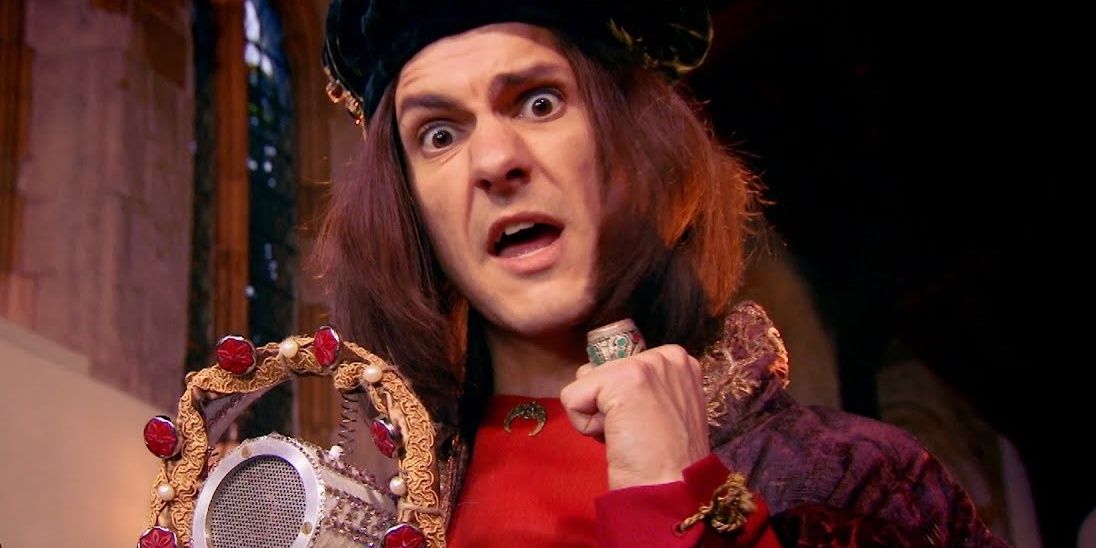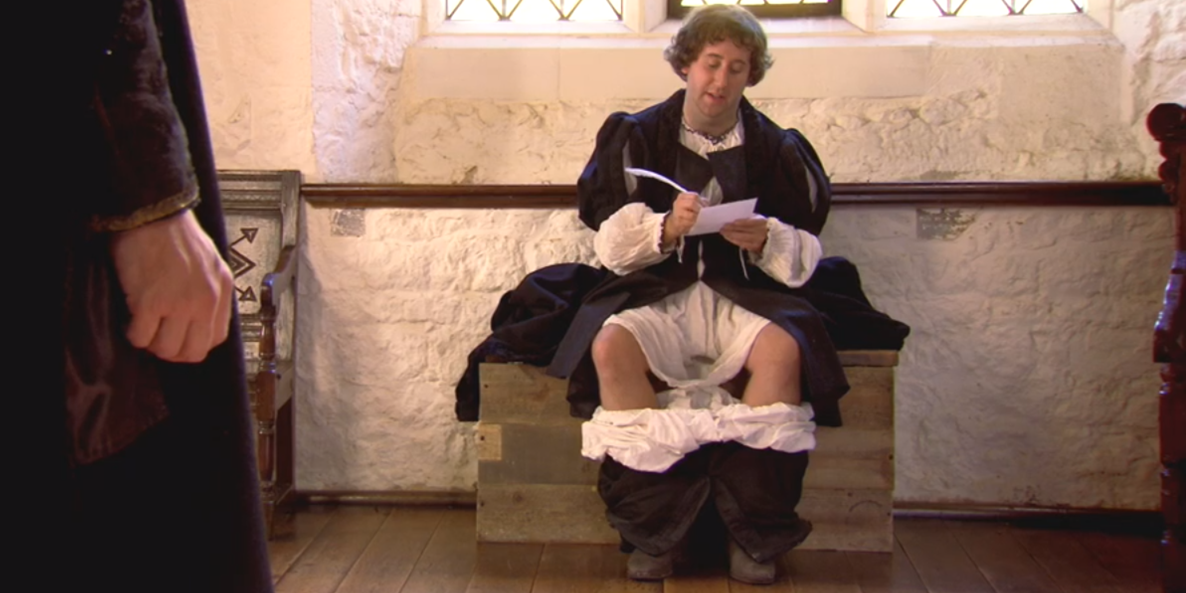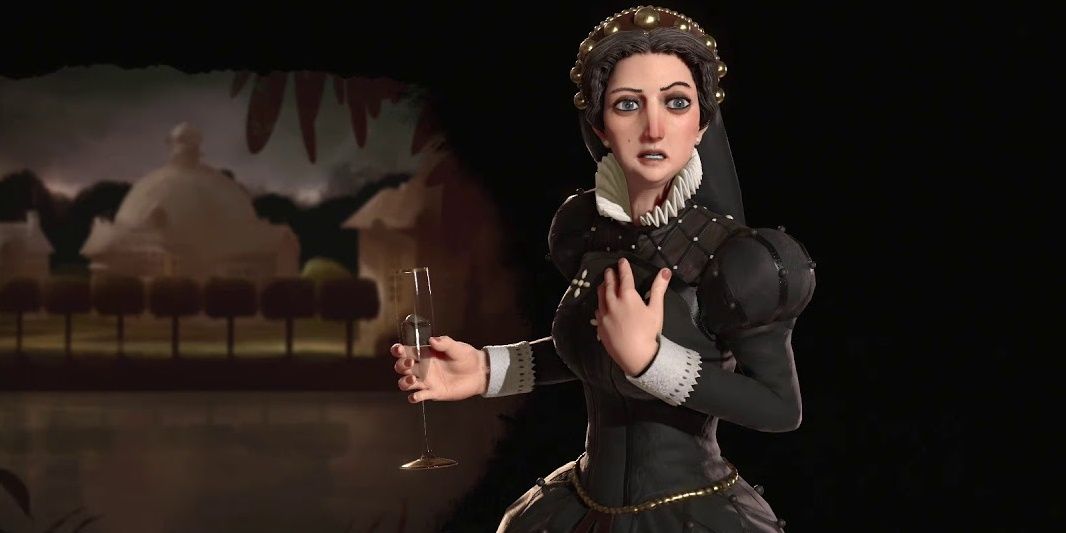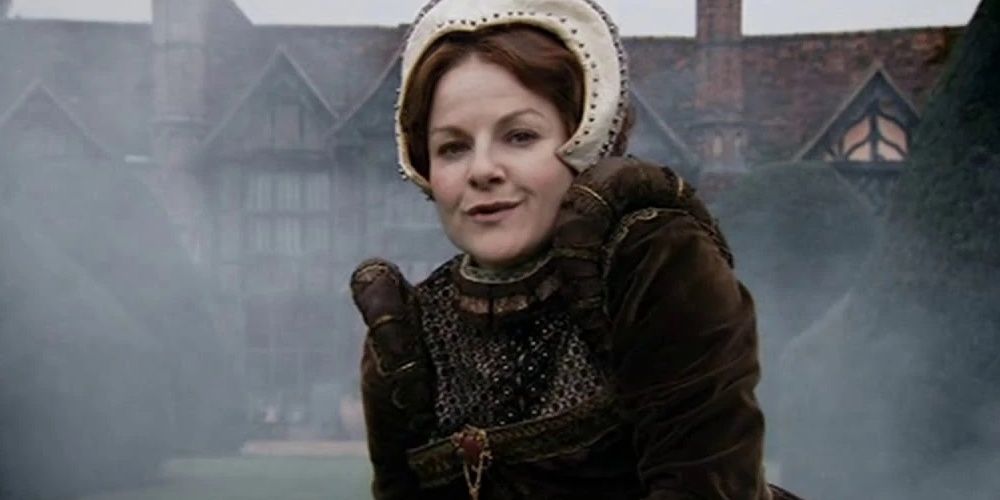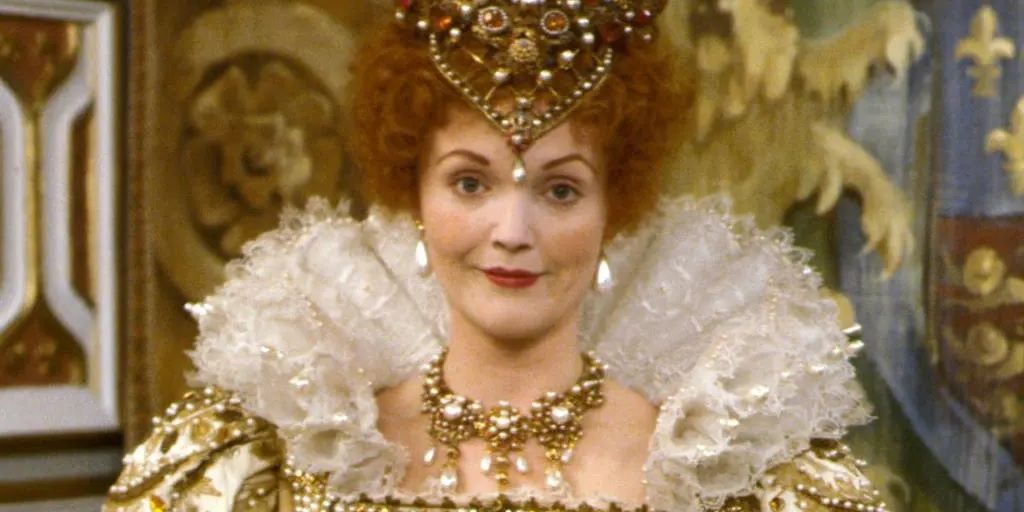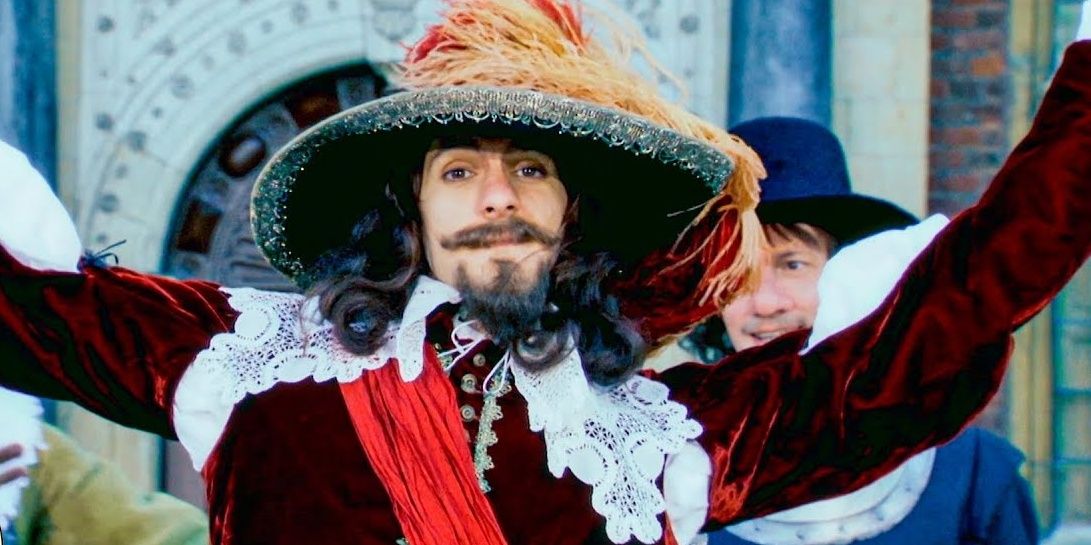One of the key defining parts of the Assassin's Creed series is its fascination with history. The games have a well-earned reputation for their thorough reconstructions of various settings, and stories that intertwine their sci-fi and conspiracy elements with real people and events. But the series has a particularly strong connection to the Middle Ages. The very first game in the series was set in the Middle East during the Crusades. They later returned to a Medieval setting in Assassin's Creed Valhalla, set during the Viking era, while Mirage appears to be going back to the Middle East, and the upcoming Project Red is set to showcase Feudal Japan.
While there is a lot of good material from the Middle Ages, this does bring out the interesting question of what other time periods might be worth revisiting. One possible answer to that is the period that came right after- the renaissance. Although it is disputed exactly where the Middle Ages end and the Renaissance begins, it is commonly thought to have started somewhere in the 14th or 15th century and continued until somewhere around the start of the 18th century.
During this time, there were a lot of political and social changes that challenged the basic feudal systems of Medieval Europe. Assassin's Creed was able to to explore part of this in the games surrounding Ezio Auditore, but there are other big moments in the renaissance that could also make great games.
8 The Wars of the Roses (1455-1487)
The Wars of the Roses began in 1455, with two families disputing their claims to the throne. Both had different-colored roses as their symbol (hence the name) and the conflict escalated to a 32 year-long Civil War that finally ended when Henry Tudor overthrew King Richard III at Bosworth fields.
Henry Tudor went on to become King Henry VII and started the Tudor dynasty, which included his more famous son Henry VIII and granddaughter Elizabeth I. Unsurprisingly, the Wars of the Roses during left significant public upheaval and political instability in England. Even after Henry took power, legitimizing his claim to the throne proved an uphill battle that left him paranoid of being overthrown.
This is the kind of situation that would almost certainly get the attention of both Assassins and Templars, the latter of whom would likely be keen on inserting themselves into the conflict for their own ends.
7 The Spanish Inquisition (1478-1845)
The infamous Spanish Inquisition was formed in 1478, with the goal of kicking out all the so-called "heretics" who were living in Spain at the time. In this case, "heresy" meant anyone who was not Catholic, but was especially targeted towards Jewish and Muslim populations. The Inquisition became infamous for its cruelty. Their victims were frequently subjected to imprisonment, torture, and brutal executions, not to mention the Auto-da-fé, a public event in which their torture and execution of heretics were put on full display.
Unsurprisingly this is definitely the kind of situation where the Assassins would want to intervene.
Technically, this was attempted in the 2016 movie, but the plot about Michael Fassbender's ancestor fighting the inquisition turned out to be a very small part of a largely present day-focused narrative. The film never had a chance to go into the full details of the inquisition's politics or inner workings. A game that could actually make the Inquisition its primary focus would have a lot more room to explore Renaissance-era Spain and the impact of their cruelty.
6 Protestant Reformation (1517-unknown date)
Prior to the 1500's, most of Europe had adopted Catholicism as the dominant religion. That changed when a priest named Martin Luther (not to be confused with Martin Luther King Jr, the Civil Rights leader) became disillusioned with the practices of the Catholic Church, which had become more profit than faith-based. It had gotten to the point where they were literally making people buy salvation through "indulgences." Being less than thrilled with this, he began challenging the Church's authority and took several radical steps that challenged its hold over the population. The result was a huge disruption of power as an increasing number of people began questioning their religious beliefs, ultimately leading to the rise of Protestantism.
A lot of Luther's ideas would make him a logical ally of the Assassins. Although they might not agree with all his religious views, the Brotherhood would certainly oppose the practice of indulgences and the hold the Catholic Church had at the time. Luther's efforts to promote free thinking would also be of interest to the Assassins. The Templars, by contrast, would have every reason to want Luther's movement squashed. This would be even moreso the case considering the Protestant Reformation was not long after the fall of the Borgia family as depicted in Brotherhood, meaning a lot of their corruption and lust for power might still be lingering in their ranks.
Mind you, an Assassin's Creed game centered around Martin Luther might need to be more open to toilet humor if it wants to get him right. He had some strange habits that included making the toilet his base of operations and writing letters to friends with detailed descriptions of his feces.
5 Ivan the Terrible (1547-1574)
When people hear the word "renaissance," the obvious things that spring to mind are Britain or Italy. But Russia had its own renaissance going on as well, during which it saw one of its most famous rulers take power. Ivan the Terrible was the first leader to adopt the title of "Tzar," starting a tradition that would carry until the First World War, and his reign would shape Russia into what it is today. Exactly how terrible he really was is debated by historians, but his reign saw a lot of violence and brutality. It didn't help that Ivan likely had serious mental health issues in an era when nobody knew what mental health was, which only added to his growing instability and cruelty.
A game set in the reign of Ivan the Terrible would be showing a period of great political instability. Both the Assassins and Templars would have a vested interest in trying to resolve the chaos, which could be a solid point of conflict. The Assassins would presumably want to end his oppression while the Templars would be interested in using the rocky political landscape to insert themselves into positions of power.
4 Catherine De Medici (1547-1559)
Catherine De Medici was sometimes known as the "Black Queen" for her alleged tyranny. This label has been disputed by historians, many of whom argue she was actually the victim of an extensive smear campaign. Regardless, Catherine De Medici became an extremely influential woman and effectively the Queen of France (albeit on a technicality, ruling on her sons' behalf). Her reign was characterized by a lot of political intrigue and double-crossing that would ultimately escalate into the French Wars of Religion. Her infamous "Black Queen" title comes from her being blamed for the St. Bartholomew's Day Massacre, an incident in which French Catholics began systematically targeting and slaughtering French Protestants.
In actuality it is thought to be her son or political rivals who are to blame. This does sound like the Templars' playbook. Creating problems to instill distrust towards a public figure is a pretty common tactic for them. This opens up a few obvious contenders for the Templar Order, particularly the Duke of Guise Henry I- a long-standing political rival of Medici. The events surrounding the St. Bartholomew's Day Massacre also seem like a situation where the Assassins would feel inclined to step in, given their fondness for justice.
3 Mary I (1553-1558)
Queen Mary I did not rule very long, a total of five years. But in that time she quickly earned a reputation as a brutal tyrant, so much so that she received the nickname "Bloody Mary." This had a lot to do with her desire to undo her father's campaign to make Protestantism the state religion. Unsurprisingly, trying to force her religious beliefs onto others led to a lot of internal conflict as well as the torture and murder of anyone who refused to accept Catholicism. This is the kind of tyranny that often gets the attention of the Assassins.
A game set during Mary I's rule would probably be centered around trying to end her oppressive regime, with the Assassins trying to break up her power step by step as is common for the series. The Templars could certainly be interested in maintaining Mary's rule. They could even go one step further and have Mary herself as a Templar, working on some sort of control scheme or just following the Templars at their absolute worst.
2 Queen Elizabeth I (1558-1603)
This may seem like the most obvious choice, but a lot happened under Elizabeth I's 45-year reign as queen. A game set in Elizabethan England would leave a lot of fun opportunities to interact with historical figures and events. Some obvious candidates would include Sir Walter Raleigh or Sir Francis Drake. Or they could get into Elizabeth's rivalry with Philip II and depict the Spanish Armada.
Alternatively they could get into the political and social unrest when the throne was challenged by Mary Queen of Scots. Of course, though it would depend on exactly which part of the era the game was set, the most obvious choice would be an appearance by famed playwright William Shakespeare. There could even be a sequence where the protagonist has to perform at the Globe Theater. Shakespare himself had some fun stories that might also be interesting points of gameplay.
One of the best is the time a dispute with a landlord led to Shakespare enlisting a team to literally dismantle the entire theater and move all the pieces, so they could be reassembled outside the landlord's jurisdiction. There could be a fun quest the player helping to move all those pieces without getting caught.
1 English Civil War (1642-1651)
Technically, there have been several English Civil Wars (see the War of the Roses Above) but when historians speak of the "English Civil War" they are usually referring to the 9-year war fought over the structure of British parliamant between two factions: the "cavaliers" who supported Charles I's claim to the throne, and the "roundheads" who wanted a government free of kings. The conflict ended up being pretty pointless. Charles I was captured and beheaded, but Oliver Cromwell's attempt at Puritan-based reformation proved so unpopular that reinstating Charles' son as the new king seemed a better option to most people.
This could have a few possible directions depending on which part of the war Ubisoft wanted to look at. It is certainly easy to see the Templars backing one side or the other for their own ends, probably the Cavaliers. The Assassins would probably agree more with Cromwell's ideas about problems with the monarchy, though even they'd probably start to reconsider it when he banned Christmas. This is of course assuming the game takes place during the actual war-another angle would be to focus on its aftermath, which would probably deal with the Assassins trying to do something about Cromwell and possibly taking part in the monarchy restoration.


